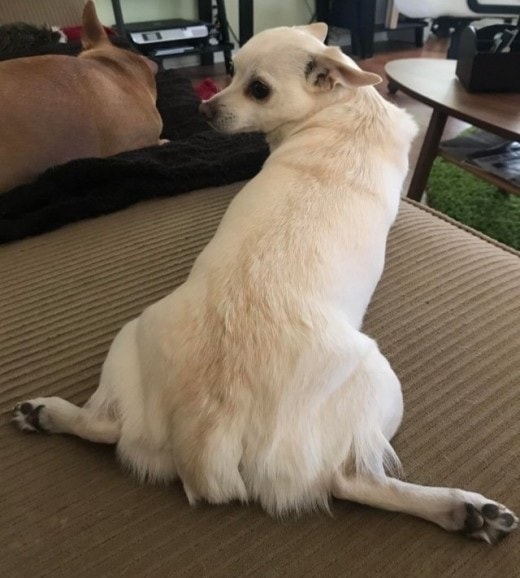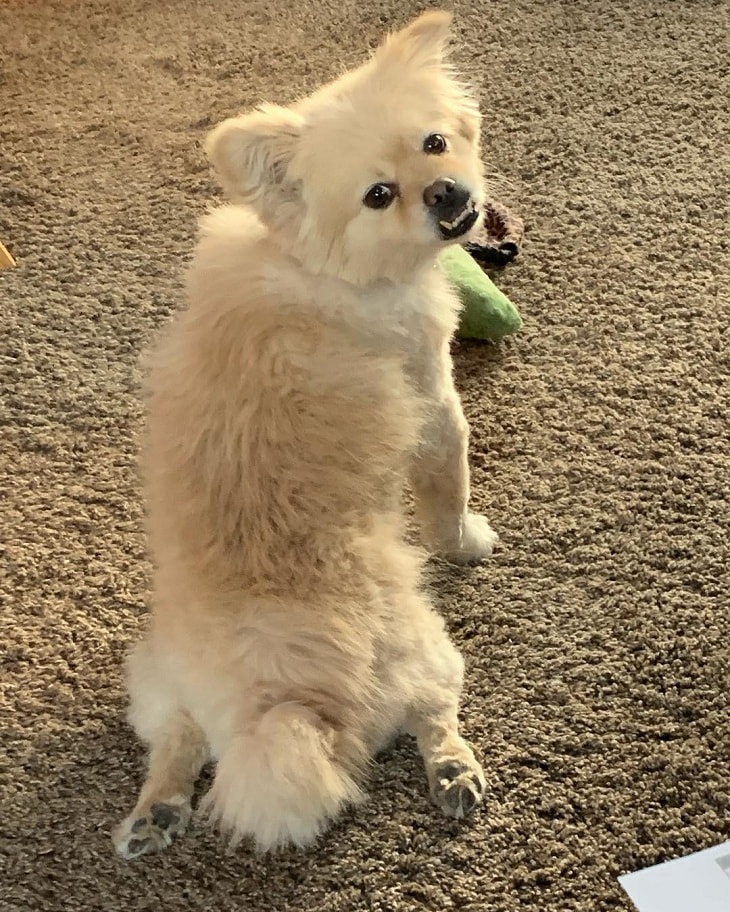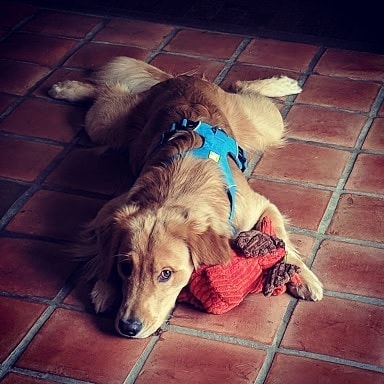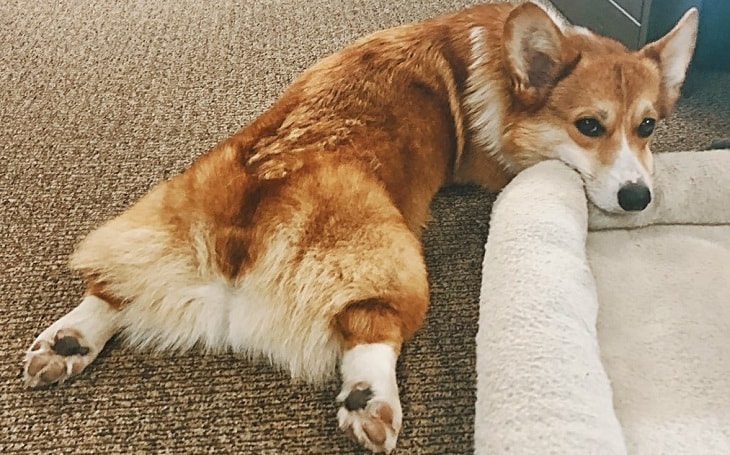Splooting Dogs – Causes and Effects of Splooting Position in Dogs
Does your dog stretch in an adorable and cute-looking way called Splooting that you can take your eyes off them for a second? Are you curious about why your dog is doing so and what are its effects?
This strange stretching position of your dog is called “Splooting” or simply “Sploot.” In this article, we’ll discuss it, the causes and effects of this position in dogs.
What is Sploot?
A Sploot is a stretching position that pets such as dogs and cats do by laying on their belly with their hind/back legs stretched out. Instead of tucking those legs in underneath their torso, they stretch out straight behind them.

Image Source: Cuteness
Not all the dogs do splooting, but it’s not like that they are not capable of doing it. Some dogs prefer doing it while some don’t.
As the Sploot is adorable and funny, dogs are going viral on the internet with pictures and videos of doing this cute pose. Although every dog breeds can do splooting, the Corgis own the credit for making this position famous.
Causes of Splooting in Dogs
While this cute and funny stretch looks adorable on your dog, there are some reasons behind it. Though there are not some valid scientific explanations for dogs doing this, there are some possibilities. Here are some causes of Splooting.
Dogs want an all-body stretch
The most appropriate possibility of dogs doing the Sploot is the need for stretching their body. Some dogs want to stretch their hips and legs very well. Because they desire a good stretch of their body, they like to use this relaxing position.
Splooting is comfortable and relaxing position
Dogs love being comfortable around while laying and sitting. As with splooting, they get to spread their hind legs backward. This helps them to gain the exact comfort and relaxation. Therefore, dogs may sploot because of this.

Stretching out the legs cools the body temperature
Sometimes, if the dogs are feeling overheated, they try to cool their belly by pressing it into the colder ground. Hoping for their body to get the desired cooling, the dogs keep attaching their belly to the ground. Thus, the dogs sploot.
Flexibility of hips and legs
Some dogs at their younger age, sploot because their hips and legs are slightly flexible when they are young. So, the flexibility of their body simply allows them to stretch easily. Therefore, the dogs sploot because of their flexibility.
Effects of Splooting in dogs
Normally, Splooting is not a major concern. The pose requires a certain degree of flexibility to achieve which is not a symptom of any larger problem. However, if you see that your dog is in pain, it is likely that they dislocated or wrenched their muscles or tissues while attempting the stretch.
If the condition is true, the dog will be unable to put weight on all four legs and will hop with forcing the body weight on the front legs.

Is Splooting bad for dogs?
Splooting is not much of great concern to worry. As dogs require little stretching of their body, it will be beneficial for them to sploot. It will help them to relax their hips and legs. Moreover, it helps to stretch out the muscles of their body. Lastly, splooting can also help their body be cool and overheat in hot months.
Is Splooting a sign of any disease?
You don’t really have to worry much if your dog keeps splooting frequently. They might be trying to grab your attention most of the time. And some sploot in order to be cooler and relax their body.

The time to worry is when your dog keeps crawling on their front legs and hopping even if they are walking normally. This can happen if your dog has hurt its body and dislocated its joints.
If the dog is hopping on their front legs like a bunny, they are likely to suffer from Hip Dysplasia. This disease occurs when the hip joints no longer fit in the socket. If you witness such condition of your dog, contact your vet immediately.
Visit Doglime for more dog health information.










